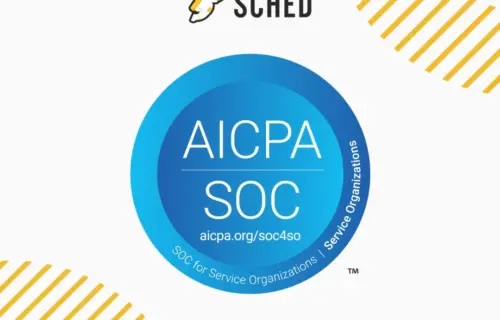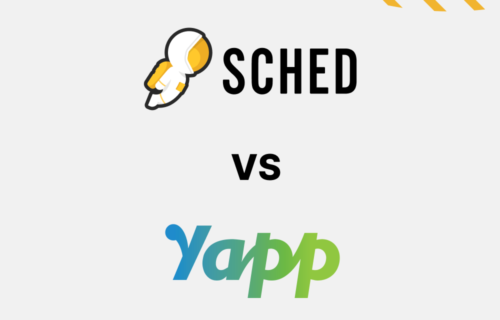If you plan events, you’re likely familiar with the benefits of event management apps. These tools can streamline your workflow, improve communication with your team and participants, and help you stay on top of every detail of your events.
While these benefits are undeniable, there are hidden costs associated with event management apps that can quickly add up and lead to overspending. In this article, we’ll explore these hidden costs and provide tips on how to avoid overspending.
The benefits of event management apps
Table of contents
Before we dive into the hidden costs of event management apps, let’s first take a look at the benefits. These tools can help you:
- Streamline your workflow: Keep all your event details in one place, from ticketing to schedules. This can save you time and reduce the risk of errors or miscommunication.
- Improve communication with your team and participants: Many offer collaboration features that allow you to share information and updates with your team and participants in real-time.
- Automate tasks: Event management apps can automate many of the repetitive tasks involved in event planning, such as sending invitations or reminders and tracking session attendance.
- Analyze data: By using event management apps, you can collect data on your events and attendees, such as attendance rates, demographics, and feedback. This data can help you make informed decisions about future events.
- Enhance the attendee experience: With event management apps, you can create personalized experiences for your attendees, such as customized schedules, mobile event apps, and real-time updates.
While event management apps can provide significant benefits, there are also hidden costs to consider. These can include:
Subscription fees
Most event scheduling software tools require a subscription fee, which can vary widely depending on:
- Feature selection
- Number of users
- Subscription duration
For example, Sched offers a range of pricing packages to meet the needs of different events. It’s important to compare different event management apps to find the best fit for you.
Remember, the cheapest plan doesn’t always mean cheaper. Sometimes investing more upfront will save you money down the line. For instance, a premium plan that takes care of data migration and setup can reduce your workload.
Setup & integration
Setting up your software can be tricky. Some platforms charge more for extras such as training your team and getting additional support.
Event management apps usually have different setup options. Some let you do it yourself, while others have a full-service setup. The cost can change depending on what kind of help you need. For example, costs can climb if you need to connect your event management app to other systems, such as a ticketing platform.
For example, Sched has different options on the table. You can do it yourself, get help from their team, or have everything done for you. Remember, your time is a cost to consider.
Data migration
If you’re switching from one event scheduling software platform to another, you’ll need to consider the cost of migrating your data. This can be a time-consuming and expensive process, especially if you have a large amount of data to transfer. With issues like lost data and duplicates, event apps often charge extra for help.
Customization
While many event management apps offer a wide range of features and customization options, you may find that you need additional customization to meet your event’s needs.
Some software may charge extra for things, such as embedding on your website or adding your event branding. These fees vary based on how much customization you need, so ask in advance.
Additional features
Event scheduling software providers often have extra features that aren’t part of their basic packages. While the bells and whistles can be enticing, they also come with a price tag.
Consider these fees and determine which extra features are must-haves for your event. Sometimes they’re available as individual add-ons. However, it can be better value to upgrade to a higher tier plan.
Support & customer service
It’s vital that you’ve got a helping hand if something goes awry. While most event management apps offer assistance, fees may pop up for certain levels of support.
Do you need attendee support? What response time do you expect? If you’re organizing a large event, would you benefit from a dedicated account manager?
Consider how much support you really need. Some events might be fine with basic support, while others need more advanced options. Factor in these costs and decide what you need to organize a successful event.
Contract renewal & cancellation fees
While event scheduling software saves time and money, subscription renewal or cancellation can generate additional costs.
These fees can add up quickly and impact your bottom line. For example, some platforms may charge up to 50% of the remaining contract value if you cancel early.
Carefully review the terms and conditions before signing on the dotted line. By taking the time to understand these fees and policies, you can make a more informed budgeting decision.
How to avoid overspending on event management apps
While there are many hidden costs to consider when selecting event management apps, there are also ways to avoid overspending. Here are some tips:
- Do your research: Before selecting an event management app, make sure to do your research and compare different options. Consider the features, subscription fees, and hidden costs of each tool to find the one that best meets your needs and budget.
- Negotiate: Don’t be afraid to negotiate with software providers. If you’re a new customer or looking to upgrade, you may be able to get a better deal or discount.
- Start small: If you’re new to event planning apps, consider starting with a basic version or a free trial to test the waters. This can help you determine whether the tool is worth the investment before committing to a full subscription. See for yourself – sign up for Sched’s free trial.
- Prioritize features: Make a list of the features that are most important to your events and prioritize them. This can help you avoid paying for unnecessary features or add-ons.
Conclusion: Are event management apps worth it?
Event management apps are great for any event planner. The right tool will streamline your event planning process and help you to deliver higher-impact events.
However, it’s important to consider the hidden costs before making a purchase. By doing your research, negotiating with providers, and prioritizing features, you can avoid overspending and find the tool that best meets your needs and budget.
Are you ready to level up your event planning game? Give Sched a whirl with a free trial and see how it can help you save time, resources, and money. Any don’t worry about hidden costs – check out Sched’s transparent pricing.








